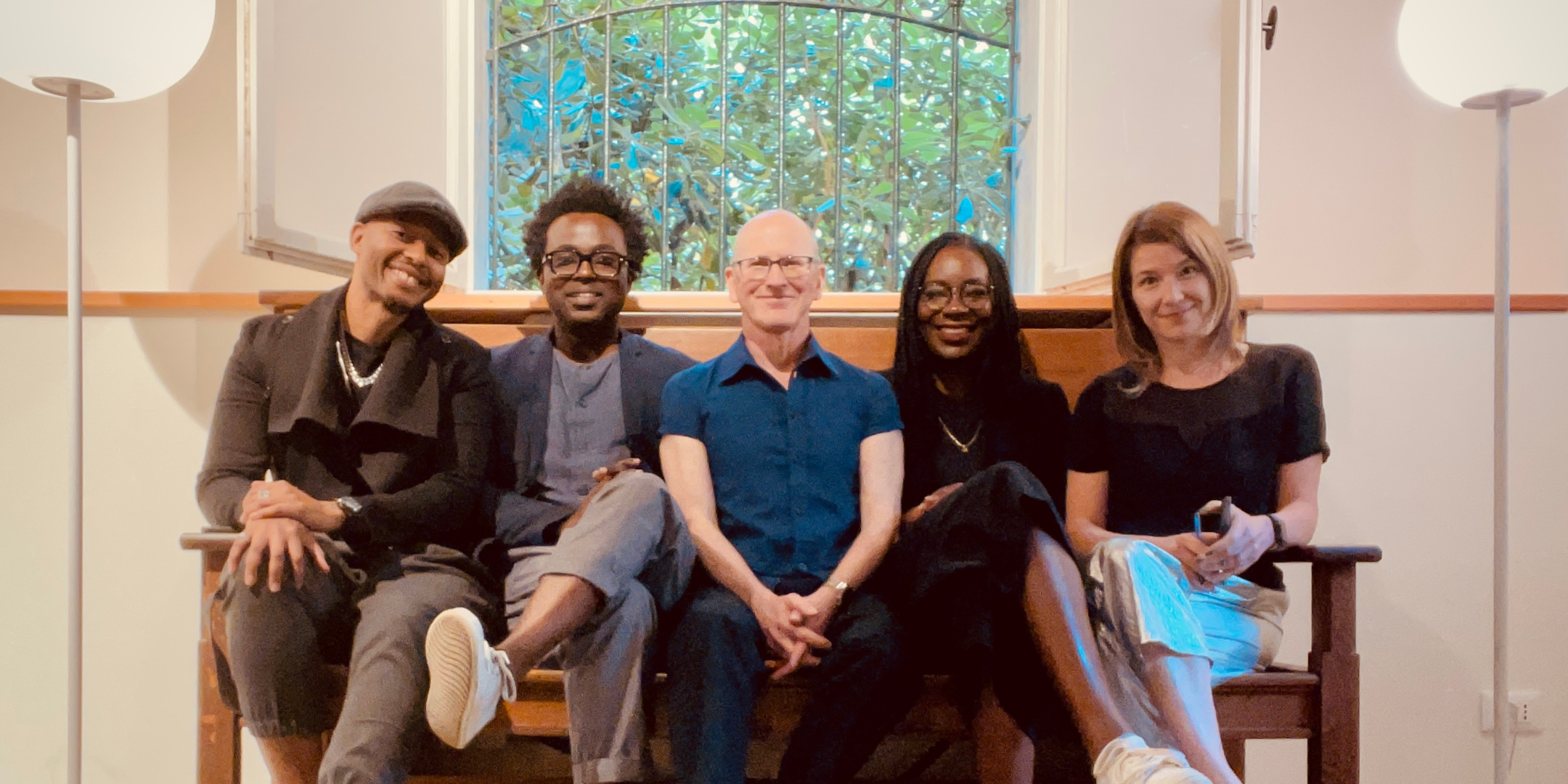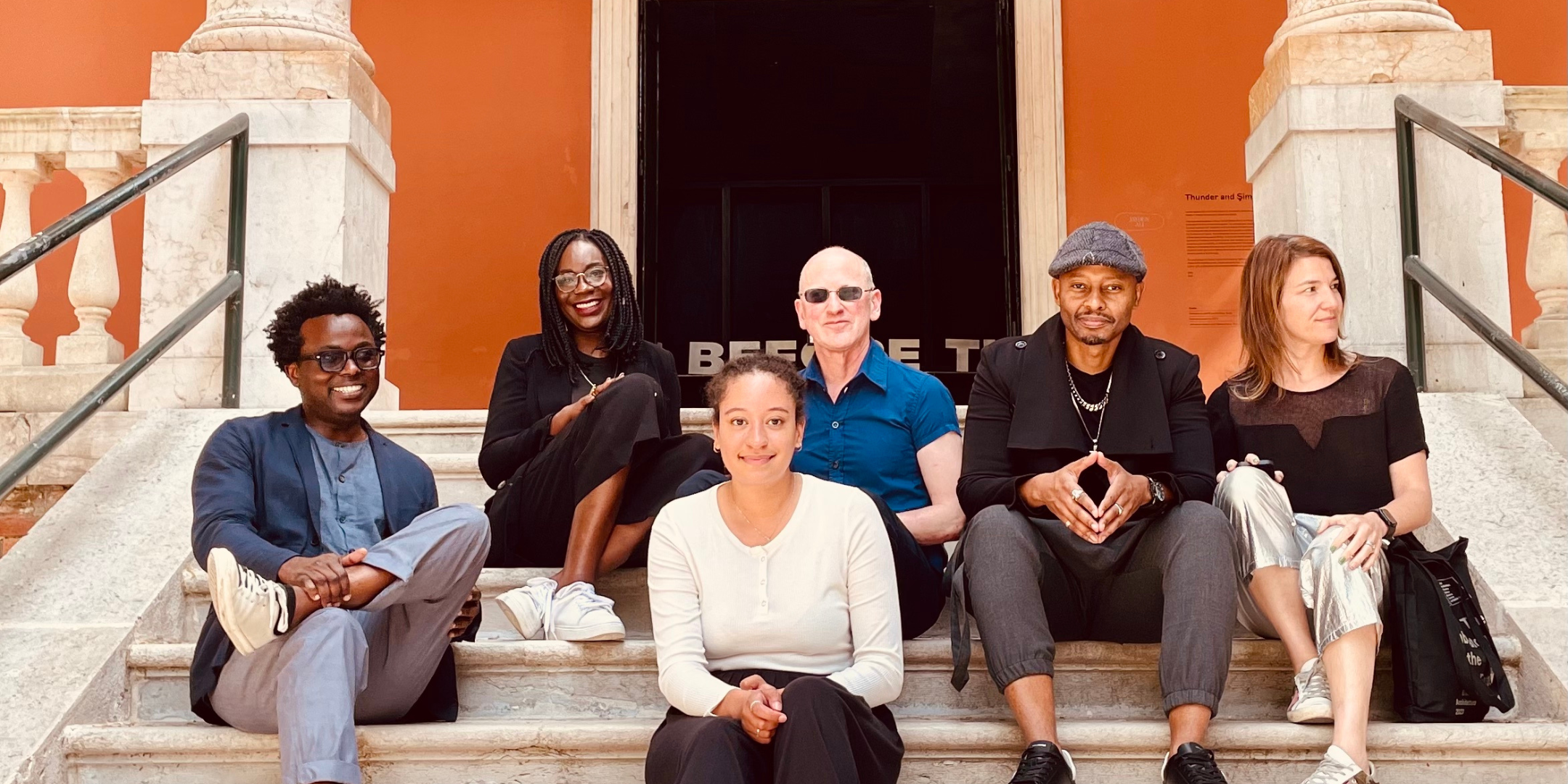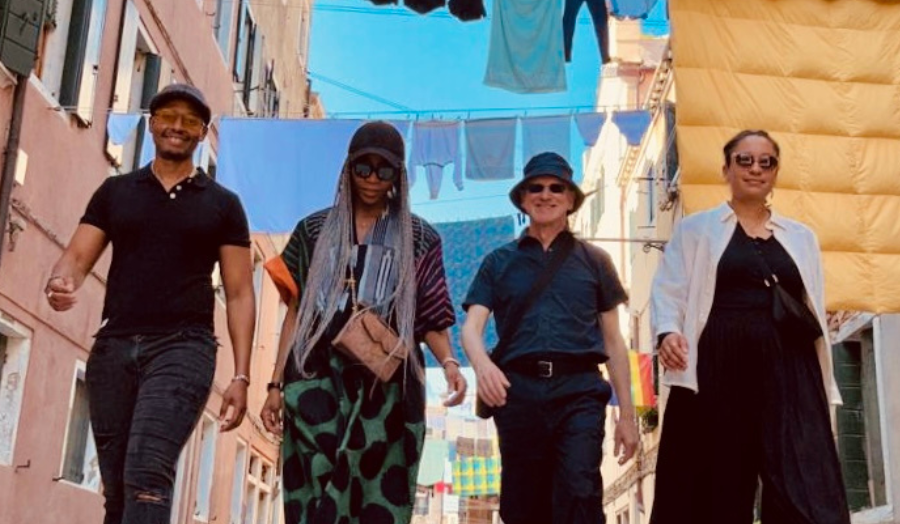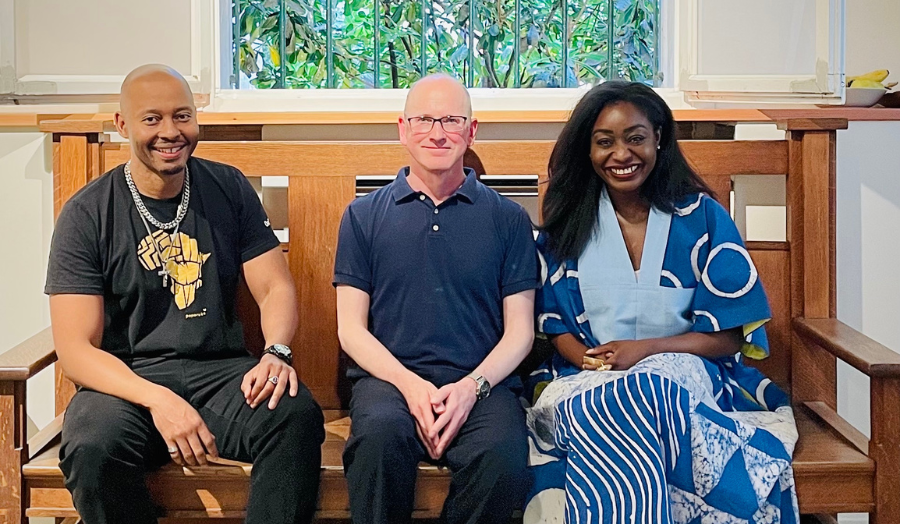Hosted by CUBE (London Metropolitan University), this public event is the third in the Afropolitan Architecture series.
"Afropolitan Axis" is the third of three 'dialogues' convened at the British Pavilion in the context of the Venice Biennale (2023). The series is part of the research and knowledge exchange initiative entitled “Afropolitan Architecture: Imagining the African Urban Future by Design” and we are delighted that the Africa Centre, London, has come on board as project partner. Supported by London Metropolitan University's Rescaling Fund, the project is a collaboration between the Centre for Urban and Built Ecologies (CUBE) and Dalberg Advisers whose support in kind made the project possible.
The intention of the dialogue series has been to extend the energetic moment of the Venice Biennale’s emergence, framed by Lesley Lokko’s curatorial provocation as the ‘laboratory of the future’, into the world of architectural practice and pedagogy with a number of key individuals positioned to consider that question “what next?”. Under the rubric of ‘Afropolitan Axis’, three themes shaped the dialogue between resident discussant Mokena Makeka and guest speakers Tau Tavengwa, Hayley Eber and Nana Biamah-Ofosu.
In relation to the umbrella concept of axiality, alignment, connectivity and correspondence, the first theme returned to the perennial question behind the series as a whole: Why Afropolitan? What does it mean? And who are the Afropolitans? Some embrace this neologism while others consider it controversial. Debate across several other disciplines – from literature to political philosophy – is similarly lively, and the question prompted reflection on both ethical as well as aesthetic or ‘stylistic’ considerations. Secondly, we addressed a question at the heart of an architect’s professional credo or ‘duty of care’ which is the theme of one’s disposition – as practitioner, educator, researcher or leader. How should we practice? Should we be activists or architects, artists or experts? And thirdly, the notion of axiality and alignment is also about pathways, roadmaps, and journeys. What about the future that this exhibition and its attendant debate has opened up? If Venice has opened the door to thinking architecture differently, where do we go next?
Speakers:
Mokena Makeka is a Principal of Dalberg Advisors. He is an accomplished architect, artist, creative, curator, global leader, scholar, speaker, and urbanist. Current and recent roles include the Azrieli Visiting Critic at Carleton University School of Architecture and Urbanism (2020), Adjunct Professor Cooper Union, Board member of the South African Green Building Council, and Cape Town Central City Improvement district. He is an alumnus of the World Economic Forum Young Global Leader programme, a member of the WCS Young Leaders in Urbanism, and an Aspen Fellow in leadership 2020. He is at the forefront of thinking about contemporary inclusive cities in Africa with a focus on ecological and socio-economic justice.
Tau Tavengwa is the co-founder, curator and editor of Cityscapes, a hybrid publication that showcases different ideas and narratives on the built environment, featuring cities globally from Africa, Latin America, and South Asia perspectives. Tavengwa was a Loeb Fellow at the Harvard Graduate School of Design (2018), an Aspen Global Leadership Fellow, a Research Fellow in Advanced Visualization at Max Planck Institute (2019-2023), and a Visiting Fellow at the London School of Economics' LSE Cities (2020-22). He is also the Curator-at-Large at the African Centre for Cities at the University of Cape Town and the curator of the 2022 Lisbon Architecture Triennial and a Jury member of the Venice Architecture Biennale 2023.
Hayley Eber is an architect, designer and educator. She is Acting Dean at The Irwin S. Chanin School of Architecture of The Cooper Union, as well as Principal of Studio Eber, an award-winning New York-based practice for architecture and design. Studio Eber was founded in 2008 and actively engages projects that seek to expand the boundaries of architecture, through the design of buildings, interiors, objects, environments and installations. Recent exhibitions of Eber’s work include the Storefront for Art and Architecture (2021) and the A83 Gallery (2021) in New York, the Venice Biennale of Architecture (2021), the Tallinn Architecture Biennale (2022) and SUSAS Shanghai (2023).
Nana Biamah-Ofosu is a Ghanaian-British architect, educator, researcher, and writer working between Accra and London. She is the director of YAA Projects, a London-based architecture, design and research practice dedicated to exploring culture, material and history through making, speaking and writing architecture. Alongside practice, Biamah-Ofosu teaches at the Architectural Association and Kingston School of Art, and is as part of the Nomadic Africa Studio faculty for the African Futures Institute, Accra. Her interests include questions on diaspora, identity, geography, communality and domesticity particularly, how these subjects encounter, align and manifest through architecture and space. She co-curated Tropical Modernism: Architecture and Power in West Africa exhibited at the V&A in London, and before that at the Venice Architecture Biennale 2023.
Chair:
Matthew Barac is an architect, writer, and academic. He is Professor of Architecture and Urban Culture at London Metropolitan University where his roles include leading CUBE: Centre of Urban and Built Ecologies and the PhD programme in Art, Architecture & Design. He is Co-Investigator on the London Afropolitan project, and leads Afropolitan Architecture, a research and knowledge exchange initiative developed in collaboration Mokena Makeka which was launched at the Venice Biennale 2023.

Image: From the left are Mokena Makeka, Tau Tavengwa, Matthew Barac, Nana Biamah-Ofosu and Hayley Eber.



